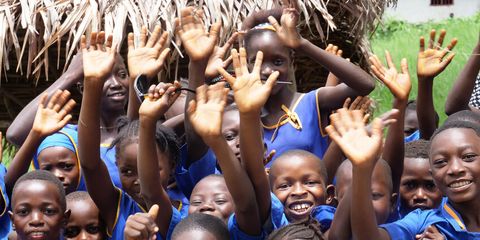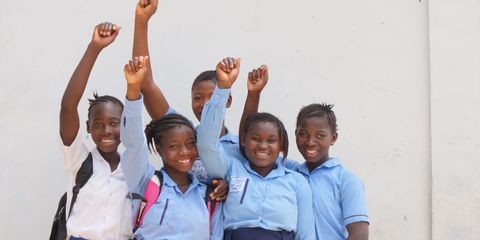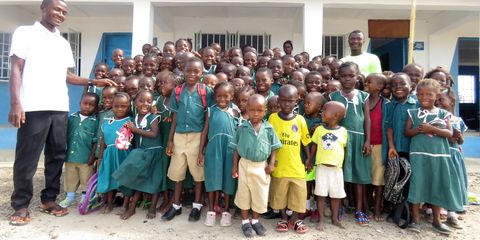Small farming community builds village school
Fatima now learns in a ventilated and spacious classroom that supports her education, after her community came together to help their children access education.
Eleven-year-old Fatima* loves going to school and hates being late or missing any of her lessons. However, with her old school around 4 miles away in a neighbouring village, the long walk each day was arduous, especially during the rainy season.
“I walked to school with my friends but when the heavy rain fell we always got soaked and arrived at school late,” she says.
Her mother Fatmata and grandfather Alusine gave her local herbs to prevent her from catching a fever or cold during the rainy season but they were unable to provide her with any food to eat for lunch. “Forget hunger,” she says. “There is just one daily meal for poor children like us who receive no leftover food from our parents in the morning.”
Coming together for a new school
Wanting to help their children access education, the small farming community in Port Loko District in the northwest region of Sierra Leone decided to construct a new school in their village so their children wouldn’t have to travel so far each day. “Our parents and community elders went to the bush, cut sticks and palm leaves and constructed a big wooden structure where most of us began studying,” Fatima explains.
“My friends and I are proud of our new school.”
Fatima, 11.
Two volunteer teachers helped manage the school and a small number of pupils attended classes, but without any desks or chairs the children sat on the floor and as the building had no doors and windows, animals would often wonder into the classroom during school hours. At the end of the day, the children and teachers would return home dusty or dirty, often coughing and sneezing because of the unpaved floor and muddy environment.
During the rainy season, the school would leak, damaging the children’s books and with no latrines, both teachers and pupils used the bush to go to the toilet causing regular outbreaks of cholera in the community. The lack of qualified teachers also meant that the standard of education was poor.
New child-friendly learning centre
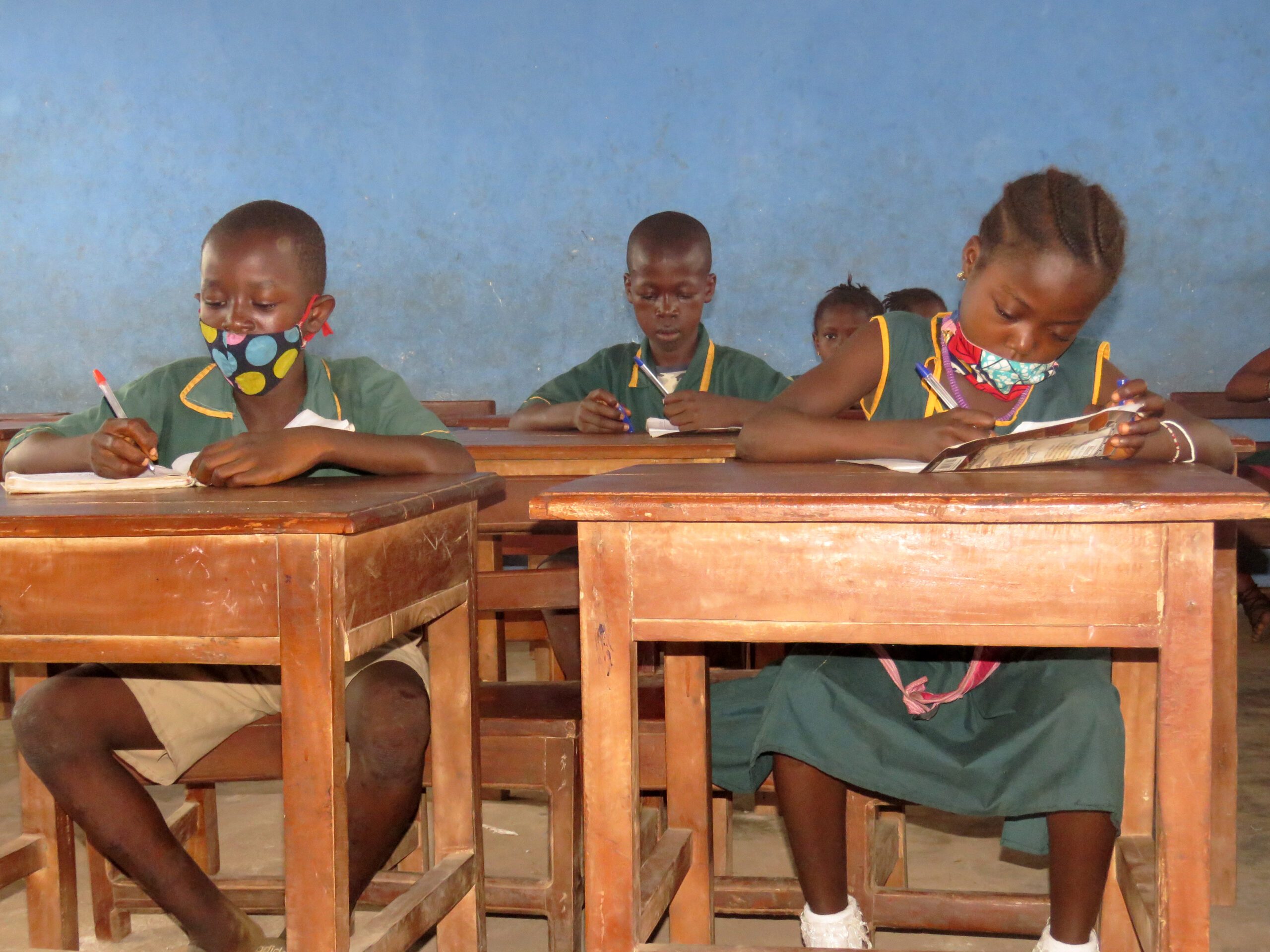
In 2019 Plan International, the district authorities, the Ministry of Education and local community collaborated to construct a new child-friendly learning centre which included 3 classrooms, a head teacher’s office, furniture and toilets. The school was also provided with a supply of learning materials. During the opening ceremony, the centre officially became a government-approved school.
Today, Fatima learns in a ventilated and spacious classroom. “My friends and I are proud of our new school,” she tells us. “We no longer worry about getting to school late or returning home dusty and filthy. No more leaking roofs. I am now doing really well in school.”
The school has increased its enrolment of students, attracting children from neighbouring communities. Some people have even moved to the village just so their children can attend the school. Instead of dropping out early to help their parents with farm work, children are more likely to stay in school and study.
Education is a fundamental right for all children
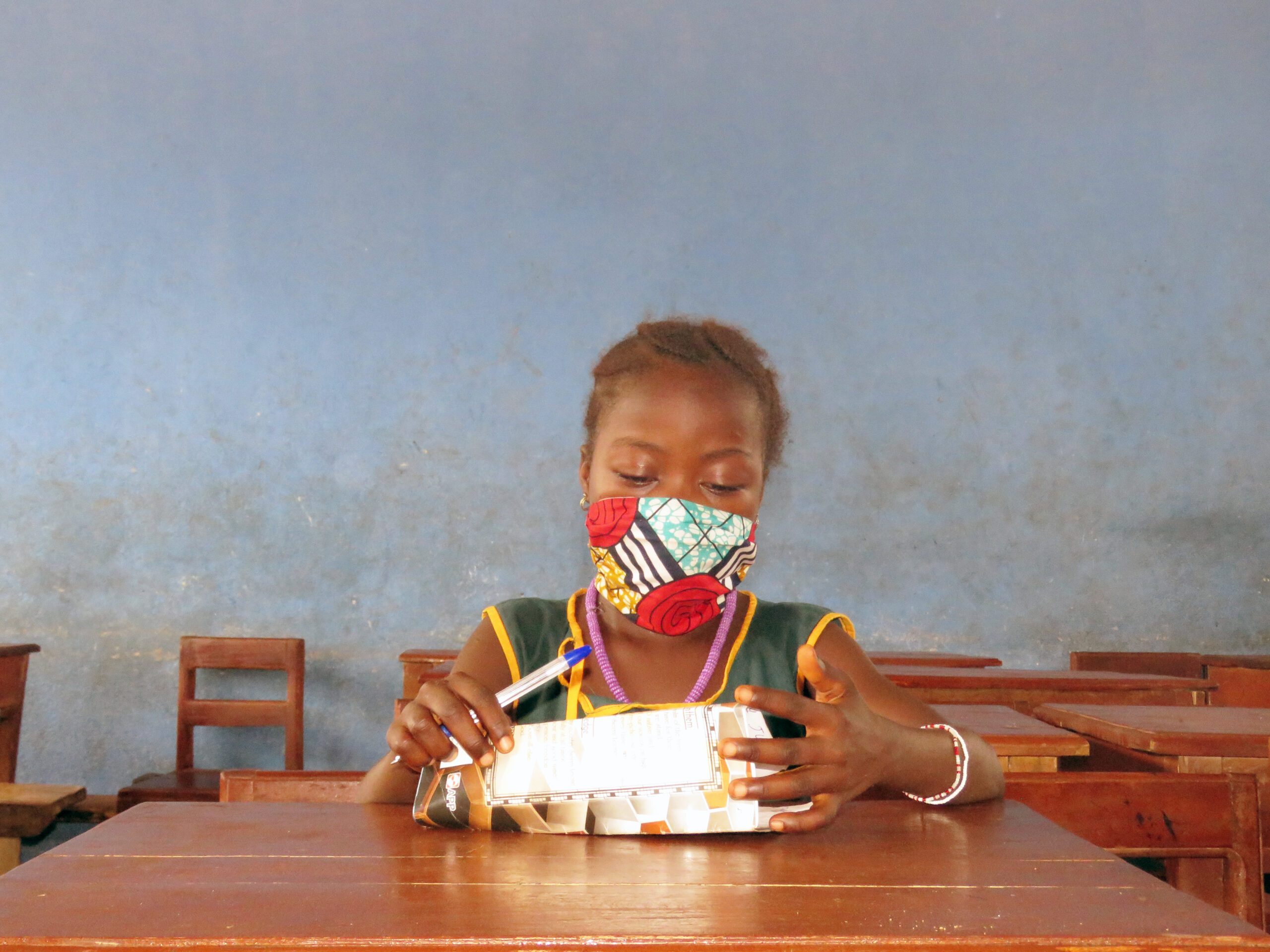
“The project’s objective is to provide girls and boys in the community and surrounding area with access to inclusive, equitable, quality education and early childhood development so they are better prepared to integrate into primary education each new school year. The fact that education is a fundamental right for all children urged us to lay this firm and solid foundation which helps promote gender sensitivity, child protection and early childhood development,” explains Umu Kpange, Port Loko Programme Manager for Plan International.
*Name changed to protect identity
